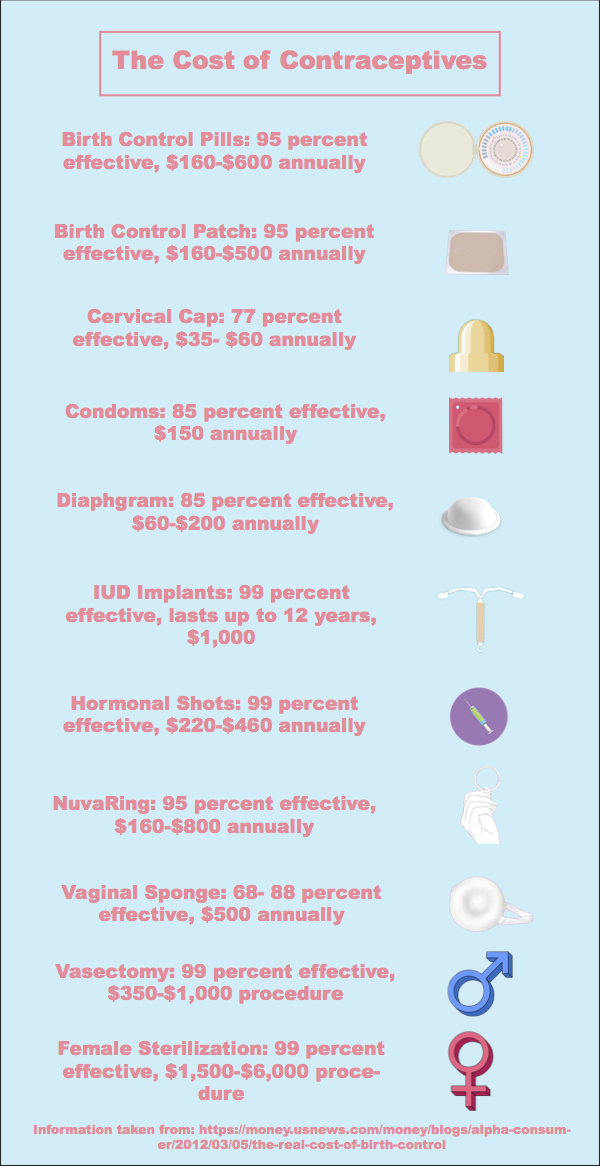President Trump’s recent attempt to rescind a portion of federal law that requires most health insurance companies to cover contraceptives hasn’t had an impact on insurance companies that aren’t required to provide such coverage because of religious or moral objections.
Last month, a federal judge blocked Trump’s attempt to do an end-run around the Affordable Care Act that was made law during President Obama’s administration. Because Congress hasn’t mustered the votes to overturn the law since Trump was elected, the president has sought to revoke provisions of it by executive order.
Locally, Deseret Mutual Benefit Administrators, also known as DMBA, is exempt from covering contraceptives. The insurance company is owned by The Church of Jesus Christ of Latter-day Saints and used by General Authorities and a majority of Church employees, including BYU faculty and some students who are required to be covered by insurance while enrolled.
DMBA does not cover any form of contraceptives for BYU students or employees, according to its plan summary, and has not done so historically. The Church’s website says its stance on birth control is that “the decision of how many children to have and when to have them is a private matter for the husband and wife.” The summary from DMBA does not cite an official reason why DMBA doesn’t cover birth control.
Cynthia Christensen, a benefits counselor and enrollments specialist at BYU, said her understanding of why the insurance does not cover birth control is because federal regulations group it under abortion.
Christensen said the policy is not absolute and there are exceptions.
“DMBA does accept birth control coverage petitions for exceptions — if a woman’s life is in danger,” Christensen said. “But these are reviewed on a case-by-case basis; there is no guarantee they will be approved.”
A Church-issued statement regarding abortion does not mention birth control, nor does it cite it as a form of abortion. The Church has a separate statement on birth control that says the choices made regarding birth control are a private manner between a married couple.

DMBA isn’t the only insurance company to exclude birth control coverage.
On June 30, 2014, the Supreme Court ruled in Burwell v. Hobby Lobby that employers are not legally required to cover birth control if it interferes with the company’s religious values. Previously, under the Affordable Care Act, companies had to cover contraceptives at no cost to the patient.
Amanda Yapias is a recently engaged BYU student who is still insured by her mother, a BYU employee, and has her own reasons for wanting to use birth control.
“We don’t have much money, and we want time before kids for it to be the two of us,” Yapias said.
Yapias expressed concerns about young couples having children and the strain it causes. She said she wants to be prepared and not risk an accidental pregnancy.
DMBA’s lack of birth control coverage came as a shock to Kayla Landis, whose husband was recently hired as a full-time BYU employee.
“I pay about twenty bucks for a month of birth control, but when I was on Select Health it was completely covered,” Landis said. “It wouldn’t bother me so much if I didn’t know other people didn’t have to pay for it at all.”
While the pill is the cheaper option, some individuals opt for implants like Nexplanon because of health concerns or lifestyle choices. Without insurance coverage, an implant or an IUD can cost up to $1,300, a cost young couples sometimes struggle to afford.




